Rob Bignell's Blog, page 258
June 13, 2016
Use plot coupon to drive your story forward
Among the 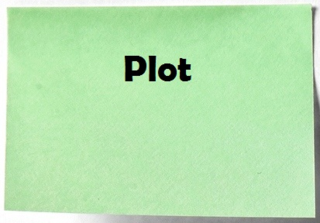 tried and true devices you can use for moving a story forward is a plot coupon.
tried and true devices you can use for moving a story forward is a plot coupon.
A plot coupon is something a character must obtain that later can be ���cashed in��� to resolve the overarching conflict so that the story may end. For example, in the ancient Greek myth Jason and the Argonauts, our hero and his valiant crew go in search fo the Golden Fleece, which once obtained will allow Jason to take his rightful place as king. The overarching conflict that began the story is that Jason must gain his rightful place on the throne, and the Golden Fleece is the plot coupon that allows him to achieve this goal. Once he is king, the story is over.
Seeking the coupon moves the plot forward. In Jason and the Argonauts, each adventure they go on centers on one element in the attempt to find the Golden Fleece. In each adventure, they may discover clues that help them find the Golden Fleece or they may suffer setbacks that must be overcome in ���episodes��� that follow.
A plot coupon is a common TV trope. British classical scholar and film critic Nick Lowe coined the term plot coupon during the 1980s. The Turkey City Lexicon later popularized it. Plot coupons also are frequently found in video games, where the obtaining of items ��� keys, orbs, etc. ��� to win the game is called a Fetch Quest.
The use of a plot coupon can be elevated above a device used in pure action-adventure stories. To do so, the coupon must be symbolic of some concept; the Golden Fleece, for example, represents authority and leadership. Obtaining it means Jason must learn lessons along the way about how to be a leader. In such tales, the main character grows as a person so that he is worthy of possessing the plot coupon. Only when he becomes worthy can the conflict then be resolved and the story end.
A plot coupon is similar to a MacGuffin, an object used in stories to trigger a plot. The nature of the MacGufin or even what it might be is irrelevant; the point of including a MacGuffin is merely to serve as an object that the protagnoist and various antagonists seek so that they come into conflict with one another. While a plot coupon can be a MacGuffin, in the hands of a gifted storyteller, it can be much more than that.
Need an editor? Having your book, business document or academic paper proofread or edited before submitting it can prove invaluable. In an economic climate where you face heavy competition, your writing needs a second eye to give you the edge. I can provide that second eye.
<A HREF="http://ws-na.amazon-adsystem.com/widg... Widgets</A>
Related articles
 Writing Inspiration: Seek another's advice
Writing Inspiration: Seek another's advice Five Great Quotations about the Writing Process
Five Great Quotations about the Writing Process Make tables readable in your self-published book
Make tables readable in your self-published book
June 12, 2016
Five Great Quotations about Good Writing
���All good 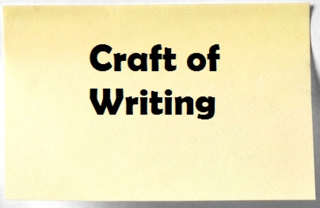 books are alike in that they are truer than if they had really happened and after you are finished reading one you will feel that all that happened to you and afterwards it all belongs to you: the good and the bad, the ecstasy, the remorse and sorrow, the people and the places and how the weather was. If you can get so that you can give that to people, then you are a writer.��� - Ernest Hemingway
books are alike in that they are truer than if they had really happened and after you are finished reading one you will feel that all that happened to you and afterwards it all belongs to you: the good and the bad, the ecstasy, the remorse and sorrow, the people and the places and how the weather was. If you can get so that you can give that to people, then you are a writer.��� - Ernest Hemingway
���At the end of the day your ability to connect with your readers comes down to how you make them feel.��� - Benjamin J. Carey
���Good writers define reality; bad ones merely restate it. A good writer turns fact into truth; a bad writer will, more often than not, accomplish the opposite.��� - Edward Albee
���One kind of good book should leave you asking: how did the author know that about me?��� - Alain de Botton
���Fiction - good fiction, anyway - is dream made flesh, given purpose and drive, and set on a quest to show us the best in us and to give us the power and the tools to dream beyond reality���s ���merely good enough��� to a vision of what is truly great...��� - Holly Lisle
Professional Book Editor: Having your novel, short story or nonfiction manuscript proofread or edited before submitting it can prove invaluable. In an economic climate where you face heavy competition, your writing needs a second eye to give you the edge. I can provide that second eye.
<A HREF="http://ws-na.amazon-adsystem.com/widg... Widgets</A>
Related articles
 Five Great Quotations for Aspiring Writers
Five Great Quotations for Aspiring Writers Five Great Quotations about Bad Writing
Five Great Quotations about Bad Writing Five Great Quotations about Rules of Writing
Five Great Quotations about Rules of Writing
June 11, 2016
Three ways to overcome writer���s block
Ever have 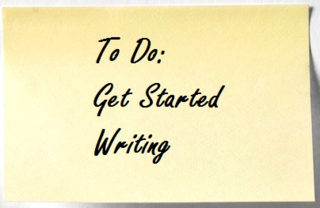 a great opening to your story but don���t quite no where to go next with it? If you���re thinking you may have a bad case of writer���s block, then the time has come for a little Rx to the malady. Here are three techniques that other writers have successfully used.
a great opening to your story but don���t quite no where to go next with it? If you���re thinking you may have a bad case of writer���s block, then the time has come for a little Rx to the malady. Here are three techniques that other writers have successfully used.
Keep outlining
Usually the cause of writer���s block is that the writer hasn���t thought enough about the story. This is where outlining can prove beneficial. It allows you to write what each scene in the story generally will be about ���specifically its main conflict and an outcome ��� so that you later can creatively expand upon it by filling in the details of the setting, beat-by-beat action, and dialogue between characters. Think of the outline as mere stage directions with you the author are the actor who makes those instructions come alive.
Write through it
If the block merely is over a single line ��� say a character���s witty retort or a phrase to describe the setting ��� try ���writing through it.��� That is, leave parts of the draft in outline form where you just write, in brackets, what you hope to achieve and then continue on with the scene that you are ready to write. This will give you some time to think about how to write point B on the line from A to C but keep you progressing with the story. Another reader or an editor then can review the draft and offer some thoughts on what to write for point B, spurring you on to creativity.
Expose yourself
Walk someplace that always has inspired you to creativity. Maybe it���s a hiking trail, maybe it���s an art museum, maybe it���s a walk along a wharf. Walking, especially in nature, helps refresh your mind, scientific studies show. Along the way, you even may encounter something that gives you just the right words to use or that helps you come up with the next scene. Just be sure to bring a pen and notepad with you so you can jot down the idea lest you forget it upon returning from the walk!
Professional Book Editor: Having your novel, short story or nonfiction manuscript proofread or edited before submitting it can prove invaluable. In an economic climate where you face heavy competition, your writing needs a second eye to give you the edge. I can provide that second eye.
<A HREF="http://ws-na.amazon-adsystem.com/widg... Widgets</A>
Related articles
 How many words is a novella?
How many words is a novella? Writing inspiration: Model a story
Writing inspiration: Model a story Pitch book through Back of Room sales
Pitch book through Back of Room sales
June 10, 2016
How to leverage Goodreads for book promotions
As Goodreads  is the place for readers to hang out, it also ought to be the place for authors to focus a good part of their book promotion efforts. After all, if you wrote a book about the history of tractors, websites focusing on tractors may attract many nonreaders, but Goodreads members interested in farm equipment definitely will be inclined to read your title. The challenge for every author is to identify ways to leverage Goodreads for promoting your book.
is the place for readers to hang out, it also ought to be the place for authors to focus a good part of their book promotion efforts. After all, if you wrote a book about the history of tractors, websites focusing on tractors may attract many nonreaders, but Goodreads members interested in farm equipment definitely will be inclined to read your title. The challenge for every author is to identify ways to leverage Goodreads for promoting your book.
Most importantly, you must ensure your books are on Goodreads. You can search your titles on the social media site; if you don���t find them there, immediately post them. Once done with that, ensure you upgrade your membership status to Goodreads Author. These two steps help ensure your discoverability on Goodreads.
This also sets you up to engage readers in quite a number of ways. For example, a feed to your blog posts can appear on your Goodreads Author page. Whenever you publish a book, you can rate it and write a review (You don���t actually review your own book but instead post an announcement that it is your latest.) that then can be sent to each of your followers. You also want to regularly connect with readers who would be interested in your book; this can be done by looking up similar titles to your own and then adding them as a friend; they hopefully will look to see who you are, learn about your book(s), and accept your friend request.
Among the most common Goodreads promotions is a Giveaway. You can give free copies of your paperback (but not ebook) in a contest that Goodreads promotes and even selects the winner of. This again draws attention to your title in which a number of people will mark it as a must-read and hopefully after the contest purchase it and even pen reviews of it.
If you host a book launch, book tour, or author appearance, you���ll be able to promote it via a Goodreads Event page. Unlike the giveaway, you can use the Event page for ebooks.
Goodreads Groups allows you to connect with readers interested in the kinds of books you write. While you are not allowed to market or promote your book via a Group, participating in it can lead to more Goodreads friends, who will be informed via other methods ��� such as the blog feed on your Goodreads Author page ��� about your new releases.
Once you���ve got a number of Goodreads friends, a great promotional possibility is Featured Groups. Specifically designed for authors, these groups allow reader and author to interact with one another, such as through Q&A sessions. Of course, the best way to make a sale is to personally interact with potential buyers.
Professional Book Editor: Having your novel, short story or nonfiction manuscript proofread or edited before submitting it can prove invaluable. In an economic climate where you face heavy competition, your writing needs a second eye to give you the edge. I can provide that second eye.
<A HREF="http://ws-na.amazon-adsystem.com/widg... Widgets</A>
Related articles
 Do Kindle DP pre-orders help or hinder sales?
Do Kindle DP pre-orders help or hinder sales? Hold contest to get more reviews of your book
Hold contest to get more reviews of your book Add hashtags to your social media posts
Add hashtags to your social media posts
June 9, 2016
How to build your book into a thriving business
One excellent 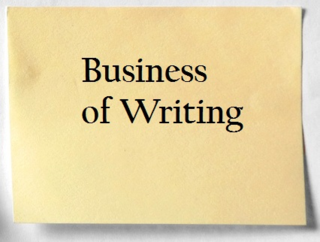 way to sell more books ��� and to finally quit your day job ��� is to build your book into a business.
way to sell more books ��� and to finally quit your day job ��� is to build your book into a business.
This strategy more readily lends itself to nonfiction authors. Writers who���ve published multiple books on the same topic or in the same genre also will find it even easier going. However, many novelists and authors of a lone book with a little creativity have successfully built a business around their book.
Once you���ve published a book, ask yourself how you might sell services or products based on your title���s subject. If you���ve published a book on canoeing or kayaking, for example, you might offer outfitting services. If you���ve written about personal finance, offering investment consulting services makes sense.
To get business for your service, you may need to become a public speaker, offering workshops, classes, teleseminars and webinars about the topic. Be sure to include the name of your book in the title of these offerings or at least in the advertisements for them. The fact that you���ve written a book makes you an expert who can give such presentations, which in turn creates opportunities to pitch your book. Such events also can help you leverage media appearances.
Ultimately, however, the presentations and books aim to generate personal services that pay far more dollars to you that public appearances or Amazon.com royalties. This does mean you that you���ll spend less time writing.
Still, you���ll need to keep writing and publishing new books related to your business; the outfitter, for example, might pen kayaking river guides, while the personal finance author might knock out books about niche topics, such as investing in the stock market or how to save for your kid���s college education. The new books widen the types of presentations and courses you can deliver as well as offer more titles that can be sold at such events.
Products beyond books also can be sold. For example, if a nutritionist or a dietician, you might create food products that follow your recommended meal plans. Or you might simply offer coffee mugs and T-shirts with your brand name on them.
Professional Book Editor: Having your novel, short story or nonfiction manuscript proofread or edited before submitting it can prove invaluable. In an economic climate where you face heavy competition, your writing needs a second eye to give you the edge. I can provide that second eye.
&amp;amp;amp;lt;A HREF="http://ws-na.amazon-adsystem.com/widg... Widgets&amp;amp;amp;lt;/A&amp;amp;amp;gt;
Related articles
 Writing Inspiration: My words can light the way for someone else on a dark path.
Writing Inspiration: My words can light the way for someone else on a dark path. Writing inspiration: Read your favorite author
Writing inspiration: Read your favorite author Writing inspiration: Model a story
Writing inspiration: Model a story
June 8, 2016
Double or single l when adding a suffix?
Don���t raise 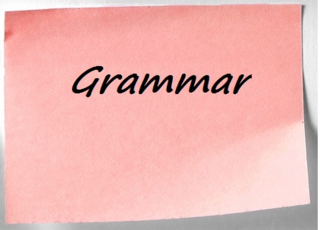 a flag telling your readers that you don���t know when to spell words like signaling (Or is it signalling?).
a flag telling your readers that you don���t know when to spell words like signaling (Or is it signalling?).
The doubling of the l when adding a suffix to a word tends to be a British convention. So, if you are in America, use signaled. If you���re in Britain, use signalled.
Other words this rule applies to includes:
AMERICAN: fueling, marveling, modeling, traveling
BRITISH: fuelling, marvelling, modelling, travelling
An exception in America is when the stress of the word falls on the second syllable. Then use a double l, as in: annulled, expelled, extolled, patrolled.
A few British spellings also stick with a single l, though they are few: appealed, devilish, loyalist, travelogue.
Professional Book Editor: Having your novel, short story or nonfiction manuscript proofread or edited before submitting it can prove invaluable. In an economic climate where you face heavy competition, your writing needs a second eye to give you the edge. I can provide that second eye.
<A HREF="http://ws-na.amazon-adsystem.com/widg... Widgets</A>
Related articles
 Take the road right: Traveled vs. travelled
Take the road right: Traveled vs. travelled Make tables readable in your self-published book
Make tables readable in your self-published book What are 'The Big Six' book publishers?
What are 'The Big Six' book publishers?
June 7, 2016
Four writing prompts: Hope
Good stories  center on the clashing of characters��� goals and motivations. Sometimes a character���s goals and motivations arise from a belief that what is wanted can be had or that events will turn out for the best when others don���t feel that way. Here are four writing prompts for stories that center on hope.
center on the clashing of characters��� goals and motivations. Sometimes a character���s goals and motivations arise from a belief that what is wanted can be had or that events will turn out for the best when others don���t feel that way. Here are four writing prompts for stories that center on hope.
Man vs. nature
What are the traits and qualities that allow hope to flourish? Courage? Faith? Ingenuity? Resourcefulness? Trust? Determination? Have your main character survive a natural disaster and its aftermath, examining along the way how he maintains hope with those or other qualities.
Man vs. man
Two people find themselves in an extremely difficult situation with one another. One character begins to succumb to pessimism while the other holds on to hopefulness. How does that latter character instill hope in his pessimistic counterpart so they can survive their situation?
Man vs. society
What if to escape a horrble situation or to avoid a devastating calamity, the only viable solution seems counterintuitive ��� and is the one our main character cannot convince others to get behind. How does he persuade a people without hope that there is a way out and that the solution will work?
Man vs. himself
What is the protagonist becomes a spent foce, unable to fulfill his duties and repsonsibilities? How did he become this way? How does he gain hope rather than fall deeper into dark pessimism and depression?
Professional Book Editor: Having your novel, short story or nonfiction manuscript proofread or edited before submitting it can prove invaluable. In an economic climate where you face heavy competition, your writing needs a second eye to give you the edge. I can provide that second eye.
&amp;lt;A HREF="http://ws-na.amazon-adsystem.com/widg... Widgets&amp;lt;/A&amp;gt;
Related articles
 Zip two disparate stories into one tale
Zip two disparate stories into one tale Consider using counterplotting in your novel
Consider using counterplotting in your novel Questions to ask yourself when plotting a story
Questions to ask yourself when plotting a story How to create an interesting villain for your story
How to create an interesting villain for your story Develop complex antagonist to maximize conflict
Develop complex antagonist to maximize conflict
June 6, 2016
Always research details of your fiction story
Unless you 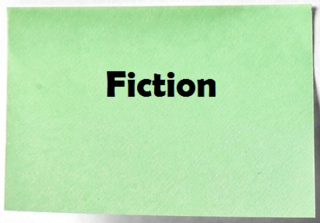 are an expert, research is essential to make your story plausible. After all, others who read the genre you write in likely will be familiar with the details of your book���s subject ��� police procedure for crime novels, theories of faster than light travel for science fiction, guns used in the Old West for westerns. Even if not writing a genre novel, getting details wrong about a historical period or a place that currently exists will be obvious to many readers ��� history buffs or someone who lives in that city/state, example.
are an expert, research is essential to make your story plausible. After all, others who read the genre you write in likely will be familiar with the details of your book���s subject ��� police procedure for crime novels, theories of faster than light travel for science fiction, guns used in the Old West for westerns. Even if not writing a genre novel, getting details wrong about a historical period or a place that currently exists will be obvious to many readers ��� history buffs or someone who lives in that city/state, example.
Either way, factual errors almost certainly will garner negative reviews of your book, primarily because your book simply isn���t believable. Getting the little facts wrong ��� such as saying the Julius Caesar lived at the time of Christ in a novel set during the fall of the Roman Republic ��� breaks the fictive dream for readers who know better.
To do research, you���ll need to read a lot of nonfiction books about the topic and even have some on hand for quick reference. Libraries offer the opportunity to pick up a number of free books on the topic, and from there you may want to purchase the better ones that you���ve read for latter reference. While the Internet also can be used, you must first ensure the information is accurate; much of what appears online is neither written by professional writers who understand research nor is it vetted by editors familiar with the topic. In addition, the Internet suffers from a limitation of available information. Though search engines may yield tens of thousands of websites about your topic, most of the information presented is redundant and either too basic or too technical to be of much use to a novelist.
When researching, start by creating a project ���bible��� in a three-ring binder. As you write your story and come across a technical fact, you���ll want to research it. Consider the following passage:
���At night, Venus is so bright, it cast shadows on the Earth,��� Admiral Damali said, as he pointed at the white wall. Faint silhouettes of the pair ran across the ground and up waist-high adobe.
Your BS radar should have started beeping during the first sentence. The writer of this passage needs to check if Venus really can cast shadows on Earth. You can bet that one of your readers knows. As a side note, Venus is indeed bright enough to do that.
In addition, you���ll want to research to give yourself ideas for your story. Learning how a forensics investigation works, for example, should allow you to identify details that a routine examination wouldn���t look for, giving you ideas for how someone might commit a murder that would prove challenging for the detective to solve the case.
Indeed, your goal in researching is not only to get the details right to become so immersed in a topic that you can accurately imagine yourself in a specific job or environment. This means you will read far more pages and take far more notes than necessary ��� and that���s OK; it���s an indication you���re being thorough. Indeed, the writer always should know about the factual elements in his story than actually appear in it.
Professional Book Editor: Having your novel, short story or nonfiction manuscript proofread or edited before submitting it can prove invaluable. In an economic climate where you face heavy competition, your writing needs a second eye to give you the edge. I can provide that second eye.
&amp;amp;amp;lt;A HREF="http://ws-na.amazon-adsystem.com/widg... Widgets&amp;amp;amp;lt;/A&amp;amp;amp;gt;
Related articles
 Writing inspiration: Model a story
Writing inspiration: Model a story How many words is a novella?
How many words is a novella? Writing inspiration: Read your favorite author
Writing inspiration: Read your favorite author Writing Inspiration: Go off the grid
Writing Inspiration: Go off the grid To write is to realize my destiny
To write is to realize my destiny
June 5, 2016
Five Great Quotations about Story Characters
���Many of 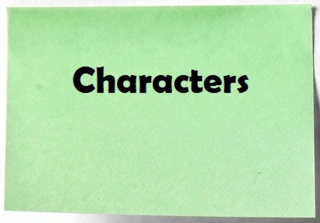 the characters are fools and they���re always playing tricks on me and treating me badly.��� - Jorge Luis Borges
the characters are fools and they���re always playing tricks on me and treating me badly.��� - Jorge Luis Borges
���Characters who simply have goals opposed by others do not create the effects of a story.��� - Bill Johnson
���Whenever I���m asked why Southern writers particularly have a penchant for writing about freaks, I say it is because we are still able to recognize one.��� - Flannery O���Connor
���The characters act for reasons that they can���t control and, as readers, we have to believe in their motivations, their sense of choice and in the reality of their suffering, even though, deep down, we know it���s all just puppetry on the part of the writer.��� - Johnny Rich
���Don���t let yourself slip and get any perfect characters... keep them people, people, people, and don���t let them get to be symbols.��� - Ernest Hemingway
Professional Book Editor: Having your novel, short story or nonfiction manuscript proofread or edited before submitting it can prove invaluable. In an economic climate where you face heavy competition, your writing needs a second eye to give you the edge. I can provide that second eye.
&amp;amp;lt;A HREF="http://ws-na.amazon-adsystem.com/widg... Widgets&amp;amp;lt;/A&amp;amp;gt;
Related articles
 Five Great Quotations about What is a Writer
Five Great Quotations about What is a Writer Five Great Quotations about Rules of Writing
Five Great Quotations about Rules of Writing Five Great Quotations about Bad Writing
Five Great Quotations about Bad Writing
June 4, 2016
Make a difference in your writing for the better
All too often, 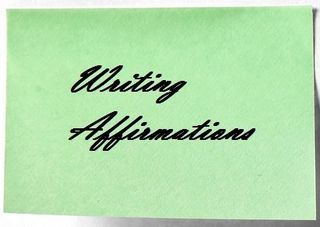 beginning writers wrongly believe that if their initial draft of a scene or even a paragraph isn���t quite up to their expectations, then the entire short story or novel ��� or even an entire writing career ��� is doomed.
beginning writers wrongly believe that if their initial draft of a scene or even a paragraph isn���t quite up to their expectations, then the entire short story or novel ��� or even an entire writing career ��� is doomed.
I���m not sure where they pick up this faulty line of reasoning. Perhaps it���s because in school they could whip off a perfect paper in a single draft at the last minute and for some reason now believe that a quite different kind of writing ��� fiction that will be sold to the public ��� should be as easy to write. Or perhaps they���re extending a general lack of self-esteem from other aspects of their life to writing. Maybe they just don���t simply realize that the authors they admire almost always wrote several drafts and undergo a lot of editing to arrive at their classic novel.
Indeed, a manuscript usually takes several drafts to get just right; like exercising, rarely does a lone visit to the gym get your body in tip-top shape. Sometimes you really need to work out a paragraph several times to give it tone and to get rid of the flab.
Sure, many aspiring writers are correct to point out that aspects of their manuscript need work. Rather than give up, though, such writers should take a proactive approach to buffing up the quality of their writing. They can do that through a simple-four step process.
Begin by saying I���ll try. The first step to becoming a better writing is to actually practice writing. For example, if dialogue gives you trouble, read up on what makes well-written dialogue. Hone those skills by doing practice exercises you find about writing better dialogue. Edit what you���ve already written, parsing it for the qualities that articles and writing guides suggest make both weak and good dialogue.
Next, say I will. Write actual dialogue for your story or novel. Don���t worry if it���s imperfect. No baseball player ever hits every ball pitched to him; no quarterback ever completes every pass he tosses. Your dialogue, however, should read better than before you researched and practiced it. If it���s not, go back to the first step.
One you find yourself writing better dialogue, you will soon tell yourself that I can. You���ll find that it comes fairly naturally and then when you edit it the problems are easily identifiable and fixable. Your confidence in this specific aspect of the writing craft has grown.
Finally, you���ll say I believe. When your book is published, you���ll look back at those sections of dialogue in it and realize they are just as good as the authors you admire. You���ve overcome this block and know that it won���t be problem when you pen your next book.
So, what do you say? Select a specific writing skill you need to improve in and say ���I���ll try���!
Professional Book Editor: Having your novel, short story or nonfiction manuscript proofread or edited before submitting it can prove invaluable. In an economic climate where you face heavy competition, your writing needs a second eye to give you the edge. I can provide that second eye.
<A HREF="http://ws-na.amazon-adsystem.com/widg... Widgets</A>
Related articles
 Writing Inspiration: 'The pleasure of each word I write is returned to me multiplied.'
Writing Inspiration: 'The pleasure of each word I write is returned to me multiplied.' Today's Writing Inspiration: Your first written sentence is the foundation of all of your dreams
Today's Writing Inspiration: Your first written sentence is the foundation of all of your dreams Write winning query letter to editors, agents
Write winning query letter to editors, agents



